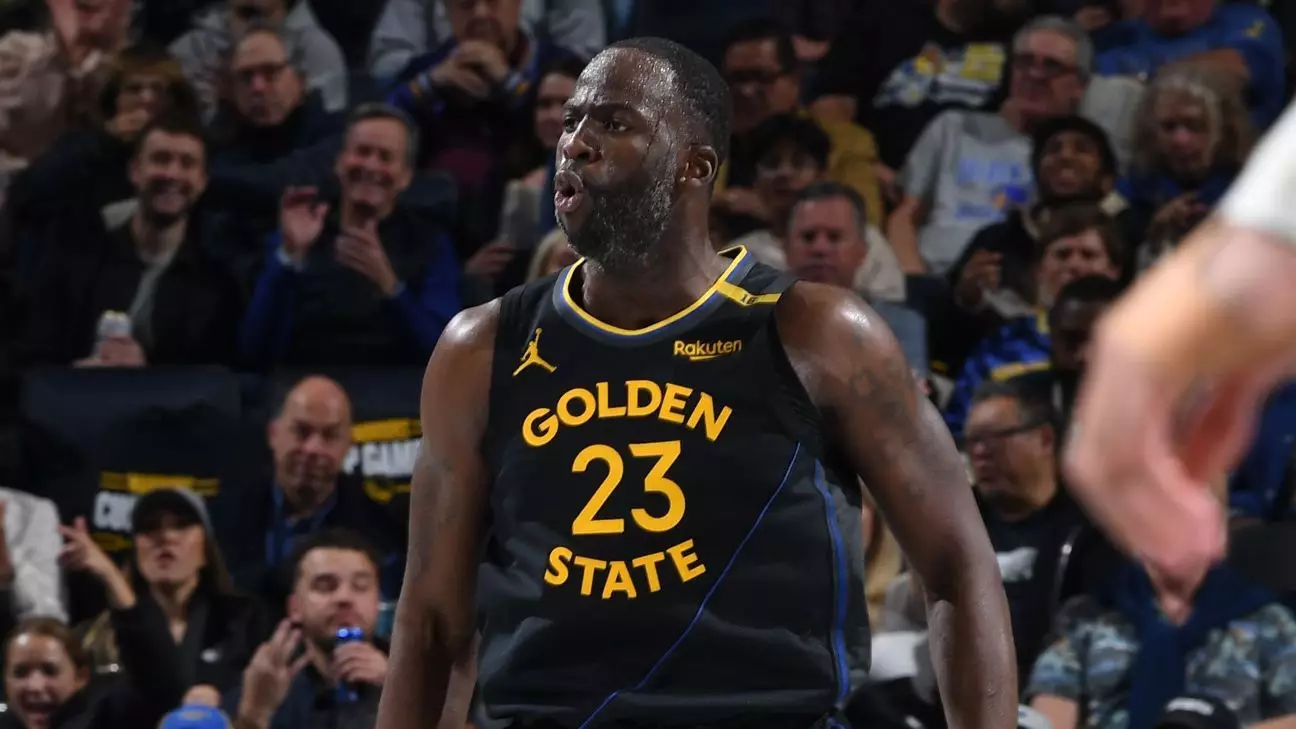In the world of professional sports, where emotions run high and stakes are even higher, moments of conflict can redefine team dynamics and player legacies. Draymond Green, the tenacious forward of the Golden State Warriors, has recently made headlines as he reflects on a regrettable episode from his past involving former teammate Jordan Poole. Their altercation, which culminated in Green punching Poole during a practice session, remains an enduring narrative, emblematic of the challenges teams face in fostering unity amid adversity.
Green’s recent apology surfaced following Poole’s positive remarks during his return to the Warriors‘ Chase Center as a member of the Washington Wizards. Those comments, coupled with the acknowledgment of a warm reception from the Warriors‘ fans, prompted Green to express remorse yet again. “I really am sorry,” he tweeted, highlighting his willingness to own up to his actions. However, the incident also serves as a critical lesson in how the past can permeate the present, manifesting in ways that can be both constructive and detrimental.
Green’s reflections on the situation, which he shared on his podcast, reveal a duality in his feelings. He openly admits his wrongdoing but articulates a broader context of provocation, where heated exchanges are dangerously common in competitive environments. This perspective invites contemplation on the complexity of interpersonal relationships in professional sports. Acknowledging one’s mistakes is a crucial step in the journey toward redemption, but Green’s insistence on contextualizing his reaction to Poole’s actions underscores the nuanced dynamics at play in team settings.
While Green’s apology may be sincere, it raises questions about the importance of moving on from past indiscretions without allowing them to define one’s career. He pointedly suggests that Poole’s comments seem to rehash old wounds, perhaps hindering both players from fully embracing their current circumstances. The idea of „moving on“ is a powerful one, particularly in professional sports, where focus and resilience are paramount.
For Green, progress this season has been an objective, underscored by a deliberate effort to manage his temper and improve his conduct on the court. Last season’s disciplinary actions, including suspensions for unrelated altercations, have sharpened his awareness of the consequences that can arise from uncontrolled emotions. Through therapy and counsel, Green aims to forge a path toward improved self-regulation, illustrating that professional athletes are not immune to the need for growth and introspection.
The fallout from the incident with Poole underscores the difficulties inherent to rebuilding trust among teammates after a significant breach. Green’s candid acknowledgment of his failings and commitment to change may set a precedent within the Warriors organization for addressing and healing from conflicts. Trust is the bedrock on which championship-caliber teams are built, and Green’s journey illustrates the vital role of accountability in restoring that trust.
However, the ramifications of their altercation extend beyond individual player experiences. The Warriors‘ trajectory as a franchise—marked by a recent exit in the playoffs and subsequent roster changes—reflects larger team dynamics that can shift dramatically following such incidents. For Green, cultivating an environment where forgiveness and growth can flourish will be essential, especially as the team grapples with new challenges.
As Green navigates his path forward, he emphasizes that accountability and reflection are not signs of weakness but rather indicators of strength. His experience has the potential to resonate with not just fans and teammates but also aspiring athletes who view professional sports through a lens of heroism. Learning to take responsibility for one’s actions, while striving for personal betterment, is a universal message that transcends the confines of the basketball court.
As the Warriors continue their season, how Green channels the lessons learned will be crucial, not only for his growth but also for the collective success of the team. It remains to be seen how unity will manifest among players who have faced conflict, but Green’s latest reflections could serve as a turning point in the ongoing narrative of teamwork and redemption within the world of professional sports.
Draymond Green’s journey post-incident with Jordan Poole encapsulates themes of remorse, personal growth, and the essential nature of moving forward. It’s a narrative filled with complexities, yet also embodies hope for evolution beyond past mistakes, crucial for both players and the teams they represent.


Napsat komentář